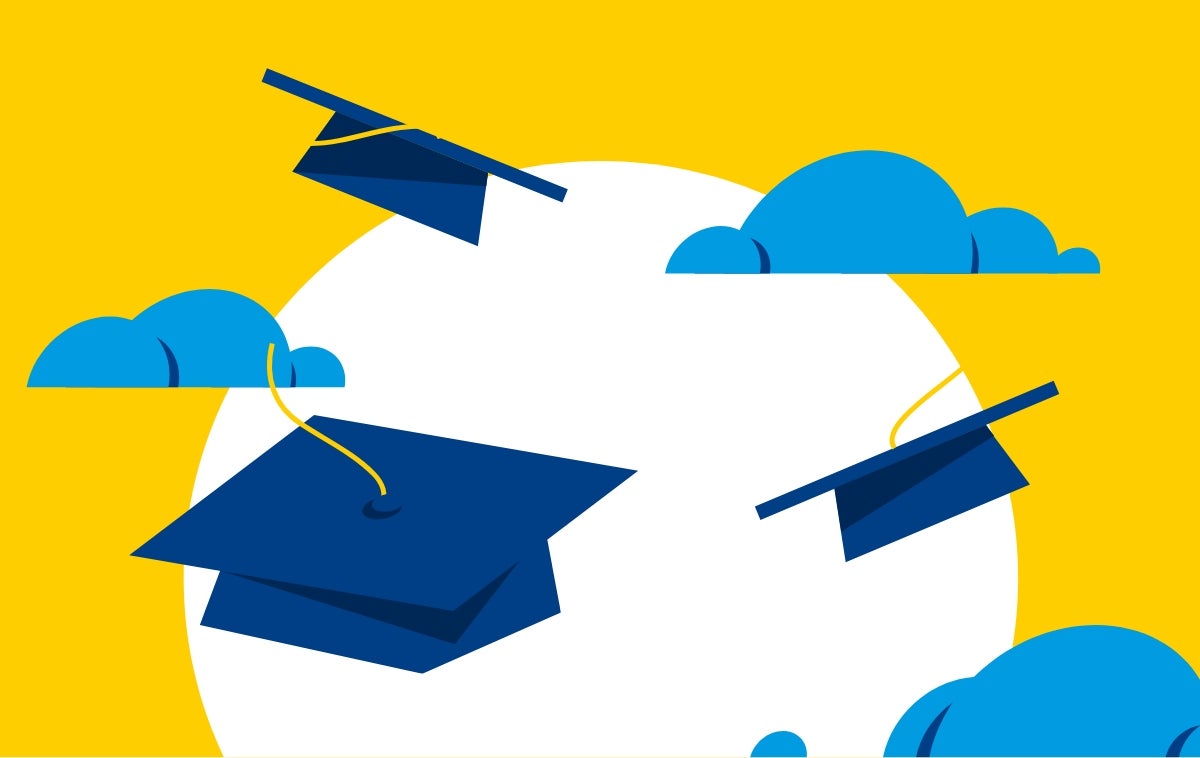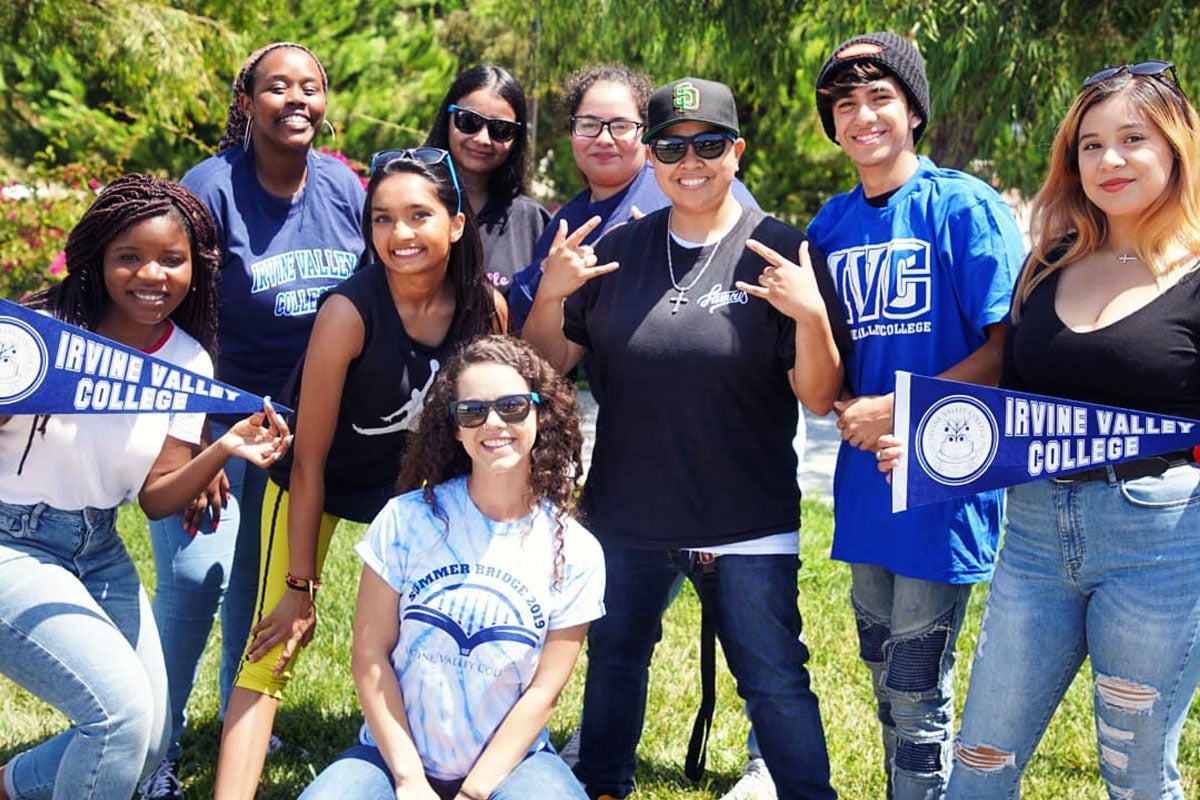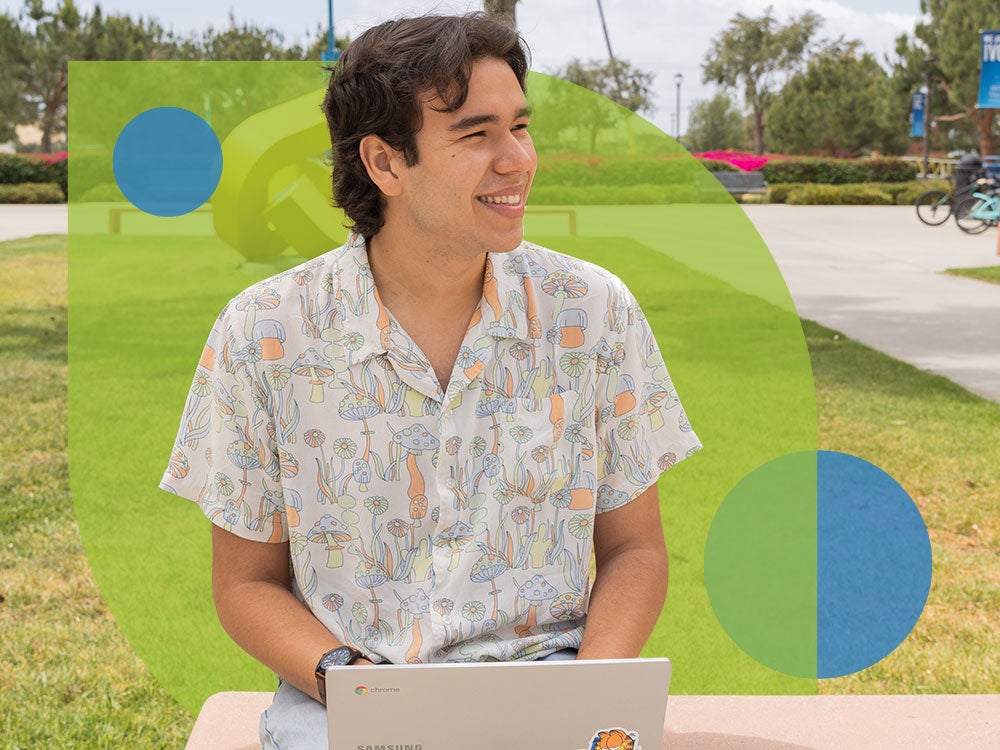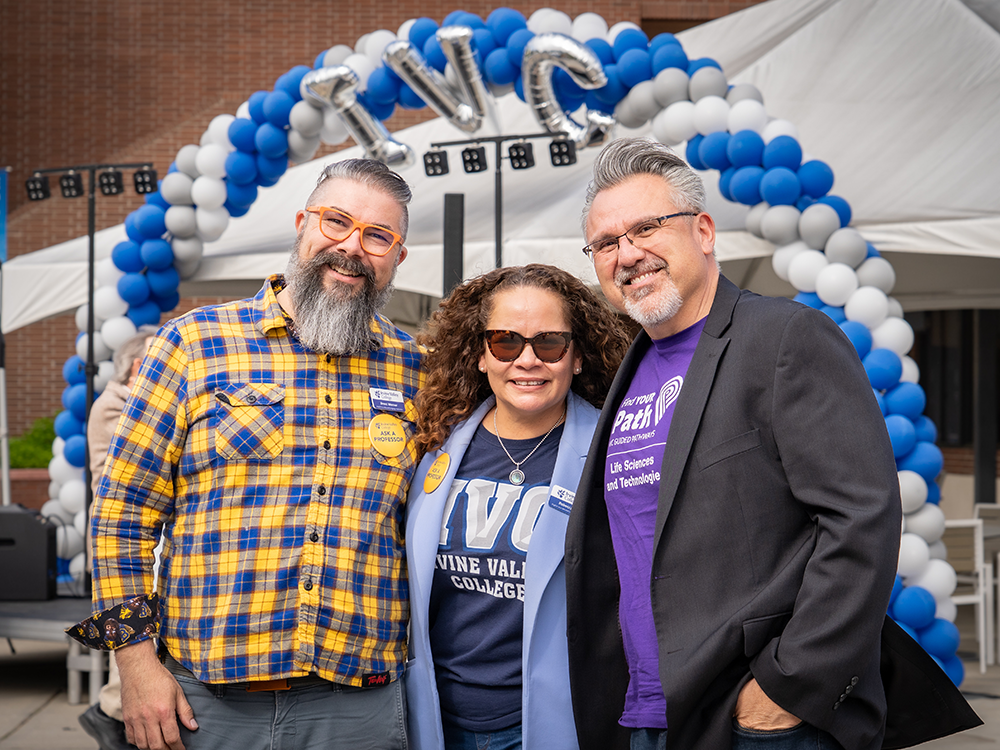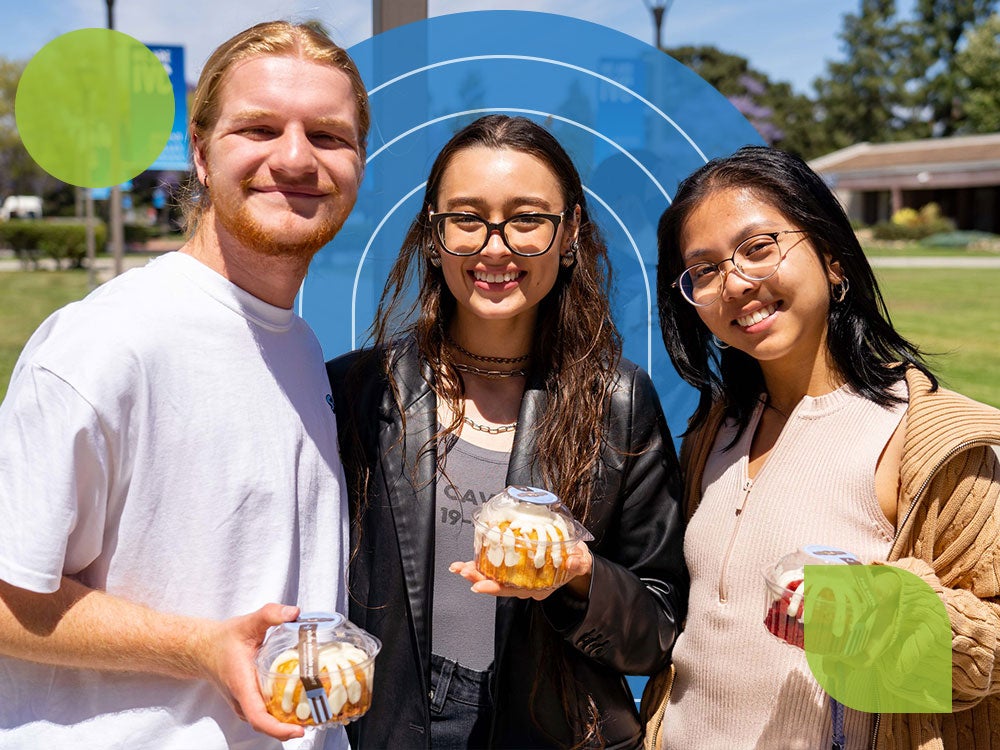Irvine Valley College students must follow state and federal laws, the California Education Code, and the policies and procedures of the South Orange County Community College District. The District established the Student Code of Conduct to provide notice of the type of conduct that is expected of each student. Being under the influence of drugs and/or alcohol or the existence of other mental impairment does not diminish or excuse a violation of the Code of Conduct.
Requirements for student conduct are set forth in the California Education Code, Title 5 of the California Code of Regulations, policies of the Board of Trustees, and in the California Penal Code.
Students in the South Orange County Community College District are responsible for regulating their own conduct and for respecting the rights and privileges of others. Irvine Valley College students are expected to conduct themselves in a manner compatible with the function of the college as an educational institution and to respect and obey all civil and criminal laws. Failure to show respect for the standards as set forth by the South Orange County Community College District is cause for expulsion.
Students may be disciplined for one or more of the following causes related to college activity or attendance:
- Disruptive behavior, willful disobedience, habitual profanity or vulgarity, or the open defiance of the authority of, district personnel.
- Assault, battery, or any threat of force or violence upon a student, district personnel, or an authorized visitor.
- Willful misconduct resulting in injury or death to a student or district personnel or an authorized visitor, or willful misconduct resulting in damage, defacing, theft, or other injury to any real or personal property owned by the District, or district personnel, or students in attendance at the colleges or programs of the District.
- Unsafe behavior in a clinical or lab setting that poses a threat to self or others.
- The unlawful use, sale, or possession on district property or presence on district property while under the influence of any controlled substance or any poison classified as such by state or federal law.
- Smoking in an area where smoking has been prohibited by law or by policy of the
Board of Trustees or administrative regulation. - Disorderly, lewd, indecent, or obscene conduct on district property or at district sponsored functions.
- Sexual assault (as defined in Board Policy 3540) on any student or employee of theDistrict, on campus or off-campus grounds or facilities maintained by the District.
- The possession or use of any firearms, explosives, dangerous chemicals, deadly weapons, or other potentially harmful implements or substances while on district property or at a district-sponsored function without the prior authorization of the disciplinary officer.
- The obstruction or disruption, on or off campus, of any educational or administrative process or function of the District.
- Physical abuse, on or off campus property, of the person or property of any member of the campus community or of members of his or her family or the threat of such physical abuse when related to a district program or activity.
- Misrepresentation of oneself or of an organization as an agent of the District.
- Soliciting or assisting another to do any act which would subject a student to discipline.
- Use, possession, or distribution of alcoholic beverages and/or illegal narcotics/drugs on
district premises, or at district-sponsored events, or appearance on district property or
at district sponsored events while under the influence of alcohol or illegal narcotics/drugs unless otherwise provided by law and district policy. - Unauthorized recording, dissemination, and publication of academic presentations or materials. This prohibition applies to a recording made in any medium.
- Actions of force or threat of force to injure, intimidate, oppress or threaten because of the other person’s race, color, religion, ancestry, national origin, disability, gender, or sexual orientation, or because of the perception that the other person has one or more of these characteristics.
- Academic dishonesty, including, but not limited to falsification, plagiarism, cheating or fabrication, which compromises the integrity of an assignment, a college record or a program.
- Falsification involves any conduct in academic work, records or programs that is intended to deceive, including, but not limited to, the following acts:
- forging signatures on official documents such as admissions cards and financial aid applications.
- changing or attempting to change official academic records without proper sanction.
- misrepresenting or falsifying successful completion prerequisites.
- providing false information, such as immigration materials, during the admission or matriculation process.
- falsifying one’s identification or falsely using another's identification.
- logging in or otherwise gaining access to a computer, computer network or protected web site using the password or identity of another.
- citation of data or information not actually in the source indicated.
- including in a reference list of works cited a text or other information source which was not used in constructing the essay, paper or other academic exercise.
- submission in a paper, lab report or other academic exercise of falsified, invented, or fictitious date or evidence, or deliberate and knowing concealment or distortion of the true nature, origin, or function of such data or evidence.
- submitting as the student’s own work any academic exercises (e.g., written work printing, sculpture, etc.) prepared totally or in part by another.
- taking a test for someone else or permitting someone else to take a test for a student.
- Plagiarism is any conduct in academic work or programs involving misrepresentation of someone else’s words, ideas or data as one’s original work, including, but not limited to, the following:
- intentionally representing as one’s own work the work, words, ideas or arrangement of ideas, research, formulae, diagrams, statistics, or evidence of another.
- taking sole credit for ideas and/or written work that resulted from collaboration with others.
- paraphrasing or quoting material without citing the source.
- submitting as one’s own a copy of or the actual work of another person, either in part or in entirety, without appropriate citation (e.g., term-paper mill or internet derived products).
- sharing computer files and programs or written papers and then submitting individual copies of the results as one’s own individual work.
- submitting substantially the same material in more than one course without prior authorization from each instructor involved.
- modifying another’s work and representing it as one’s own work.
- Cheating is the use of any unauthorized materials, or information in academic work, records or programs, the intentional failure to follow express directives in academic work, records or programs, and/or assisting others to do the same including, but not limited to, the following:
- knowingly procuring, providing, or accepting unauthorized examination materials or study aids.
- completing, in part or in total, any examination or assignment for another person.
- knowingly allowing any examination or assignment to be completed, in part or in total, for himself or herself by another (e.g., take-home exams or on-line assignments which have been completed by someone other than the student).
- copying from another student’s test, paper, lab report or other academic assignment.
- copying another student’s test answers.
- copying, or allowing another student to copy, a computer file that contains another student’s assignment, homework lab reports, or computer programs and submitting it, in part or in its entirety, as one’s own.
- using unauthorized sources of information such as crib sheets, answers stored in a calculator, or unauthorized electronic devices.
- storing answers in electronic devices and allowing other students to use the information without the consent of the instructor.
- employing aids excluded by the instructor in undertaking course work.
- looking at another student’s exam during a test.
- using texts or other reference materials (including dictionaries) when not authorized to do so.
- knowingly gaining access to unauthorized data.
- altering graded class assignments or examinations and then resubmitting them for regrading or reconsideration without the knowledge and consent of the instructor.
- Falsification involves any conduct in academic work, records or programs that is intended to deceive, including, but not limited to, the following acts:
- Contravention of Copyright Laws
- Violation of District Board Policies and Administrative Regulations
